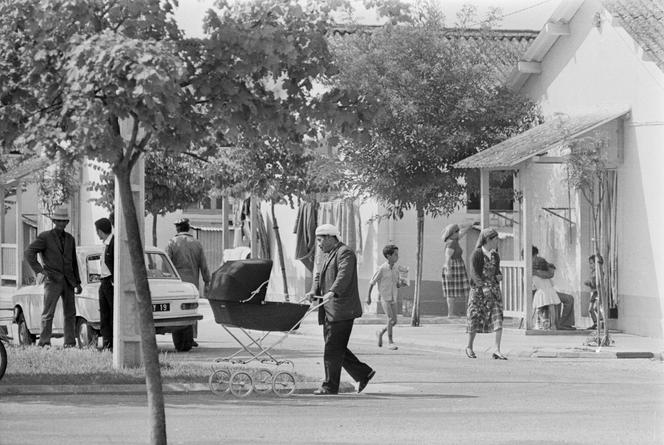


Charles Tamazount's hands were shaking, harder and harder. He was frantically refreshing the page of the European Court of Human Rights (ECHR) website every two seconds on Thursday, April 4. At 10 am sharp, the 49-year-old man read the ruling he'd been waiting on for five years. "It's incredible, justice has finally been done," he said humbly. "The horror of what we went through is finally being recognized." The ECHR had condemned France for inflicting, among other things, "inhuman or degrading treatment" (Article 3 of the European Convention on Human Rights) on four children of Harkis, Algerians who served as auxiliaries to the French military during the Algerian War, from the Bias camp in southwestern France; as well as for failing to respect their "right to privacy" (Article 8).
The court's seven judges took the decision unanimously, with not even the French representative dissociating himself from his colleagues. In their ruling, they noted that "the day-to-day living conditions of the residents of the Bias camp, the four applicants included, had not been compatible with respect for human dignity and had moreover involved infringements of their individual freedoms."
Tamazount, who was born at the Bias camp in 1974, a formidable legal expert and the president of the Harkis Truth Committee, had taken this case to the ECHR in March 2019 on behalf of his three brothers (Abdelkader, Aissa, Brahim) and his sister (Zohra). They accused the French state of having violated six articles of the European Convention on Human Rights when they lived, from their births to adolescence, behind the barbed wire fences of the Bias camp after the end of the French war in Algeria(1962), a country their parents had fled for having served the French army.
For them, France had seriously failed in its duties by not respecting their right to life and privacy. But also by misappropriating their parents' family allowance payments to keep the camp running, by denying them access to French schools and, finally, by denying them a fair trial.
Indeed, in its judgment, the court deemed that the disgraceful attitude of the French national authorities denounced by the applicants in terms of their educational needs was covered by Articles 3 and 8 of the Convention. In short, the court found that the lack of access to school was de facto "inhuman treatment."
"As I see it, this ruling constitutes an injunction for France to review its actions in their entirety, as well as its methods of recognizing and compensating for the tragedy of the Harkis," stressed Tamazount. For some 15 years, this senior civil servant has been seeking to have the tragedies of these people who had served France recognized by the courts, and to obtain for them – and their children – genuine financial compensation "commensurate with the horrors and traumas experienced," he insisted. But to understand how he arrived at the point of taking his case to the ECHR, it is necessary to go back a decade.
You have 60.63% of this article left to read. The rest is for subscribers only.
